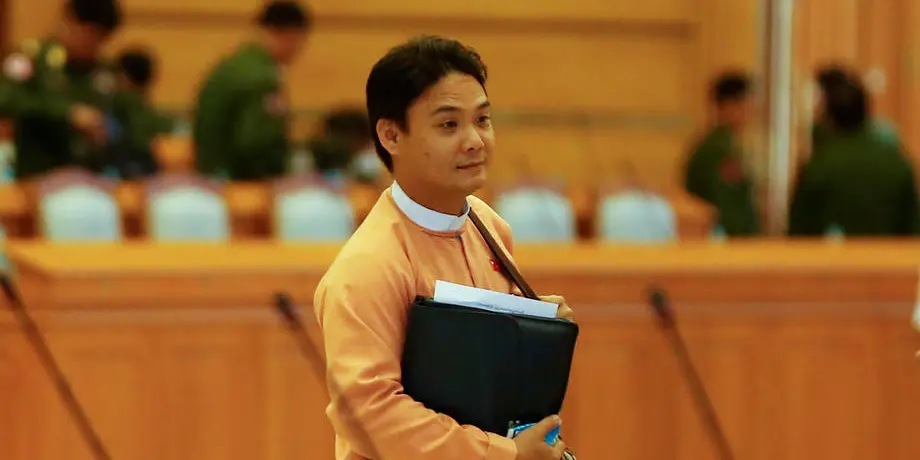
New report denounces the worsening situation of Parliamentarians at risk in Southeast Asia
March 04, 2023

JAKARTA — Parliamentarians in Southeast Asia continue to face risk of reprisal simply for exercising their mandate or expressing their political opinions, according to the latest annual Parliamentarians At Risk report from ASEAN Parliamentarians for Human Rights (APHR), launched today in Jakarta.
“The increasing risks, both physical and otherwise, faced by parliamentarians in the region are totally unacceptable and a matter of the utmost concern. Parliamentarians are the representatives of the people and their safety and freedom reflect the health of the democracies in which they work. We call on ASEAN, as well as ASEAN member states, to implement sufficient protections for them and put pressure on those governments that are arbitrarily and unjustly persecuting their lawmakers,” said Mercy Barends,member of the Indonesian House of Representatives and APHR Chair.
The year 2022 saw a worsening trend for parliamentarians at risk in the region, particularly in Myanmar, where MPs face increasing dangers in the aftermath of the 1 February 2021 coup d’état. One lawmaker, Kyaw Myo Min, was tortured to death in detention and a former lawmaker, Phyo Zeya Thaw, was executed together with three political prisoners in Myanmar. The number of parliamentarians detained across Southeast Asia remains high at 85, with 84 in Myanmar and former senator Leila de Lima in the Philippines.
“Even Myanmar MPs who have managed to take refuge in neighboring countries such as Thailand remain in a very precarious situation. Dozens of them are living in towns along the Thai-Myanmar border and find themselves constantly harassed by the police as undocumented migrants, in constant fear of being detained or, even worse, be repatriated to their country, where they would face arrest, likely torture or even worse, at the hands of the junta,” said Charles Santiago, former member of the Malaysian Parliament, and APHR Co-Chair.
Outside of Myanmar, particularly in Cambodia, Malaysia, the Philippines and Thailand, cases of physical attacks remain rare, but governments often resort to politically motivated charges against opposition parliamentarians. Reprisals and threats are not only of a judicial nature. Parliamentarians also face online harassment, and being the victims of both disinformation campaigns as well as hate speech.
In Cambodia, the government of Prime Minister Hun Sen has conducted a series of mass trials and convicted more than 100 members and supporters of the Cambodia National Rescue Party (CNRP), including a number of former lawmakers in absentia. Political persecution and intimidation by the government against members and supporters of the opposition parties, human rights defenders, land rights and environment protection activists, and journalists are expected to continue escalating in the lead up to the next general election, expected to be held in July 2023.
“Hun Sen and his party have been slowly building a one-party dictatorship over the years. The process has been so slow that few have noticed, but the signs are unmistakably clear and have resulted in an almost totalitarian state. The international community must hold Hun Sen’s government to account for its widespread human rights violations and ensure the opposition parties and their candidates are able to contest in the 2023 general election in a free and fair environment with a level playing field before it is too late,” said Kasit Piromya, former Thai Foreign Minister and APHR Board Member.
Meanwhile, in Malaysia and the Philippines, online disinformation and hate speech against MPs continue to be widespread. Opposition parliamentarians in both the Philippines and Thailand also often face judicial harassment through the use of overly broad legislation, while the continued existence of draconian laws such as the Sedition Act and the Communication and Multimedia Act in Malaysia remain a threat that hangs over the heads of potential government critics.
“The use of laws as weapons against politicians is nothing but a perversion of the rule of law, one of the cornerstones of a democracy. In several countries across Southeast Asia, laws and courts are used as instruments of those in power, rather than what they should be: instruments to prevent or stop abuses. It is necessary to hold those governments that abuse their power to account and make them understand that they are not above the law,” said Mu Sochua, former member of parliament from Cambodia and APHR Board Member.
Click here to read the full Parliamentarians At Risk report.
Click here to read this statement in Burmese.
Click here to read this statement in Indonesian.
Click here to read this statement in Malay.
ASEAN Parliamentarians for Human Rights (APHR) was founded in June 2013 with the objective of promoting democracy and human rights across Southeast Asia. Our founding members include many of the region's most progressive Members of Parliament (MPs), with a proven track record of human rights advocacy work.